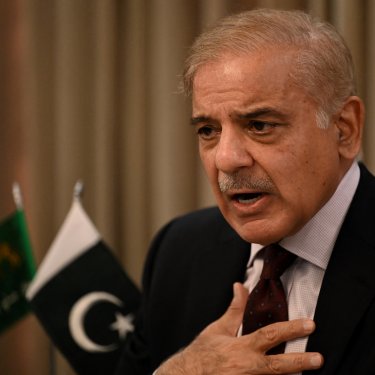Pakistan: RSF and FNP urge new PM to implement press freedom pledges

Pakistan’s new prime minister, Shehbaz Sharif, has pledged to defend press freedom including by dropping much criticised plans for a new media control authority. Reporters Without Borders (RSF) and its local partner, Freedom Network Pakistan (FNP), urge him to keep these promises.
The 70-year-old Sharif, a former Punjab province chief minister and younger brother of former Prime Minister Nawaz Sharif, was elected Pakistan’s prime minister on 11 April after a censorship motion toppled Imran Khan.
“We are fully committed to freedom of press & speech,” he announced less than a month later in a tweet on 4 May, noting that Pakistan had fallen 12 places in RSF’s Press Freedom Index during the last year of Khan’s tenure as prime minister.
During Khan’s nearly four years as prime minister, the government stepped up harassment and intimidation in order to censor the media in what is one of the world’s deadliest countries for journalists. But Pakistani political parties that support press freedom when in opposition are often the first to restrict it when in government.
“We hope the new government will undo the legacy of the previous government of Imran Khan, who was intolerant of critics and tried his best to keep dissenting media as silent as possible,” Freedom Network executive director Iqbal Khattak said.
Daniel Bastard, the head of RSF’s Asia-Pacific desk, added: “The undertakings to defend press freedom given by the new prime minister since taking office are promising. We urge Shehbaz Sharif to implement the promised measures without delay and in a transparent manner, and to go further, notably by undertaking to repeal Section 6 of the law on protecting journalists and to end impunity for crimes of violence against media and journalists.”
The leading press freedom measures announced by the new government include the withdrawal of a much criticised proposal for the creation of a new media control authority and to work with the media on a revision of the 2016 Prevention of Electronic Crimes Act (PECA), which has so far served above all to restrict freedom of expression.
The new information and broadcasting minister, Marriyum Aurangzeb, has also pledged “zero tolerance” for online intimidation of journalists and doxxing (the dissemination of personal information for intimidation purposes).
